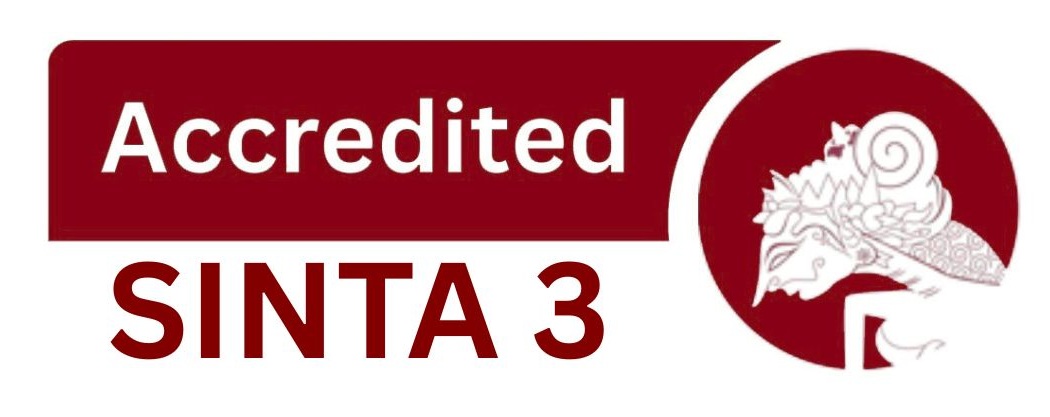DESIGNING AUTHENTIC ASSESSMENT FOR WRITING SKILL AT THE TENTH GRADE OF SMAN UNGGUL DHARMASRAYA
DOI:
https://doi.org/10.22460/eltin.v10i1.p65-79Keywords:
Developing, Authentic Assessment, Writing SkillAbstract
TThe assessment in curriculum 2013 is more emphasized on authentic assessment. Authentic assessment is needed in assessing the students' performance. Since the English teacher has a limited understanding of authentic assessment and has not scored rubric therefore, it is necessary to develop an authentic assessment for writing skill. This research aims at finding out the students' needs and to develop authentic assessments for writing skills. This research was a research and development method (R&D) through ADDIE (Analyze, Design, Develop, Implement, and Evaluate) model. This research only focuses and discusses on the design stage. The design stage consists of designing models and scoring rubrics for writing skill. The results of this research show that there are 4 types of models and scoring rubrics, namely: 1) Essay Question, 2) Short answer and sentence completion task, 3) Fill the blank, and 4) Picture cued task. These models were valid and practice categories to be used in assessing or improving students' writing skills. The models of authentic assessment that have been designed effectively can be applied to assess students' writing process because they are based on practical theories that have been developed.References
Alshakhi, A. (2018). Revisiting the Writing Assessment Process Saudi English Language Institute: Problem and Solution. Canadian Center of Science and Education, 12(1).
Brown, H. D. (2003). Language Assessment: Principle and Classroom Practice. Longman.
Cushing. (2002). Assessing Writing. Cambridge University Press.
Darling, S. ., & Snyder. (1999). Authentic Assessment of Teachingin Context. Teaching and Teacher Educator Journal, 16(5–6).
Frey, Schmit, & All, E. (2012). Defining Authentic Assessment for Students. A Peer-Review Eletronic Journal, 17(4).
Graham, S., Hebert, M., Harris, K. R., & Harris, K. R. (2016). Assessing the Writing Achievement of Young Struggling Writers : Application of Generalizability Theory. Special Education and Communication Disorders. https://doi.org/10.1177/0731948714555019
Gulikers. (2006). Authentic is in the Eyes of the Beholder. Wageningen University.
Natalia, D. E., Asib, A., & Kristina, D. (2018). The Application of Authentic Assessment for Students Writing Skill. Journal of Education and Human Development, 7(2), 49–53. https://doi.org/10.15640/jehd.v7n2a5
Nitko, A. . (1983). Educational Test and Measurement: An Introduction. Harcourt Base Jovanovich.
O’Malley, & Pierce. (1995). Authentic Assessment for English Language Leraners. Addisan-Wesley Publishing Company.
Putri, I. K., Zaim, M., & Refnaldi, R. (2019). Developing Instruments for Evaluating the Implementation of Authentic Assessment for Speaking Skill at Junior High School. 301(Icla 2018), 205–212. https://doi.org/10.2991/icoelt-18.2019.17
Rukmini, D, & Saputri, L. A. D. E. (2017). The Authentic Assessment to Measure Students’ English Productive Skill Based on 2013 Curriculum. Journal of Applied Linguistics, 7(2).
Rukmini, Dwi, & Saputri, L. A. D. E. (2017). The Authentic Assessment to Measure Students’ English Productive Skills Based on 2013 Curriculum. 7(2), 263–273.
Sahyoni. (2016). Developing Authentic Assessment for Speaking Skill at Tenth Grade I MTsN.
Sunarti dan Rahmawati, S. (2014). Penilaian Dalam Kurikulum 2013, Membantu Guru dan Calon Guru Mengetahui Langkah-Langkah Penilaian Pembelajaran (Maya (ed.)). Andi.
Sunarti, & Selly. (2014). Penilaian dalam Kurikulum 2013. C.V ANDI.
Surya, A., & Aman. (2016). Developing Formative Authentic Assessment Instruments Based on Learning trajectory for Elementary School. 2(1), 13–24.
Weigle, S. C. (2009). Assessing Writing (J. Charles Alderson and Lyle F. Bachman (ed.)). Cambridge University Press.
Zulkifli, H., Razak, K. A., & Mahmood, M. R. (2018). The Usage of ADDIE Model in the Development of a Philosophical Inquiry Approach in Moral Education Module for Secondary School Students. Scientific Reserach Publishing, 2111–2124. https://doi.org/10.4236/ce.2018.914153












